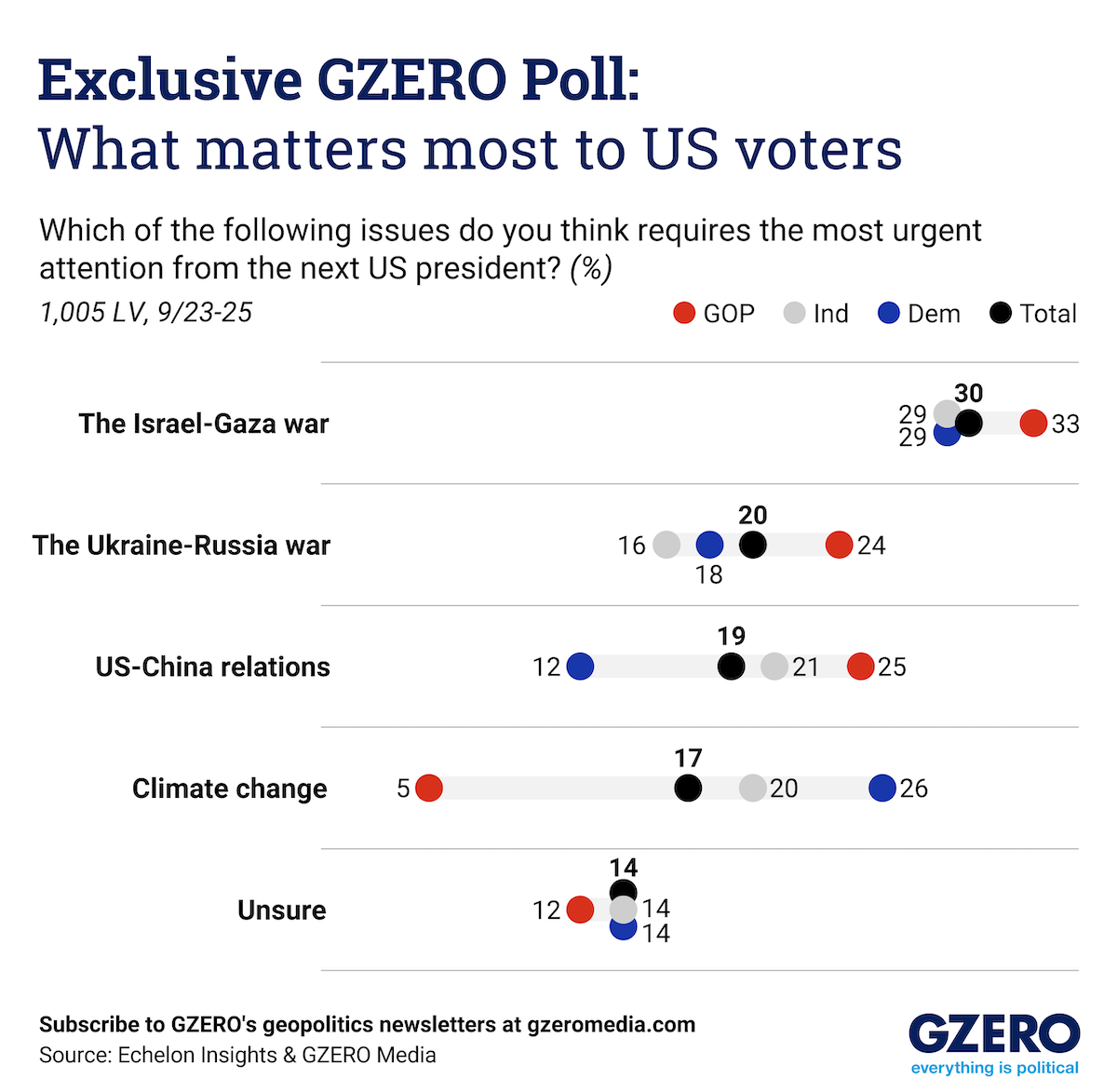October 01, 2024
Polls reflect an American electorate split over who should become the 47th president. So GZERO decided to dig deeper and partnered with Echelon Insights for some exclusive polling to find out what Americans think should be the first geopolitical priority for the next US president, regardless of who ends up in the Oval Office in January.
Our survey of 1,005 voters found that across the political spectrum, a majority of Americans believe the Israel-Gaza war is the most pressing issue for the White House, followed by the Ukraine-Russia war, US-China relations, and then climate change.
Interestingly, climate change was the second most pressing issue for Democrats, with 26% of respondents saying it should be the top priority. Meanwhile, among Republicans, only 5% of respondents answered it was the biggest issue. The Ukraine-Russia war, which Donald Trump has repeatedly vowed to end within 24 hours of taking office, came in second among Republicans’ top priorities, at 24%, compared to third for Democrats, at 18%.
This could be a reflection that Republicans share Trump’s belief that immediate action needs to be taken to end the Ukraine war (even if that comes at the expense of Ukraine), whereas Democrats are more satisfied with the continuation of the current administration’s support for Kyiv.
We also polled Americans on who they trusted more to be alone in a room with Vladimir Putin and found that the responses were almost as equally divided as the polls on who should be the next president, as you can see below:
More For You
- YouTube
Is Trump permanently redefining the American presidency? On Ian Explains, Ian Bremmer breaks down the political revolution President Trump has launched from the White House.
Most Popular
Think you know what's going on around the world? Here's your chance to prove it.
Pro-government supporters holding a Venezuela's flag attend a rally against U.S President Donald Trump in Caracas, Venezuela August 14, 2017.
REUTERS/Ueslei Marcelino
When they meet at the White House today, Venezuelan opposition leader and Nobel Peace Prize winner María Corina Machado will seek to convince US President Donald Trump that it was a mistake to back Delcy Rodríguez as interim leader of Venezuela.
© 2025 GZERO Media. All Rights Reserved | A Eurasia Group media company.
